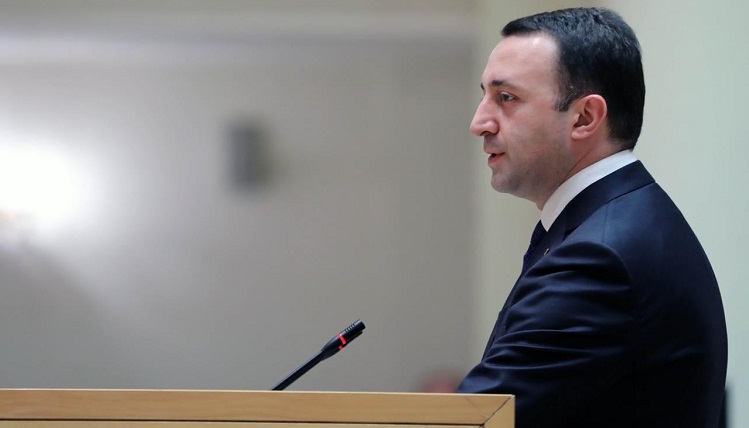“Radical opposition” still “plotting unrest” in Georgia, threat of internal destabilisation “key challenge” - PM

Georgian Prime Minister Irakli Garibashvili reiterated the “radical wing” of the domestic opposition acted “against state interests”. Photo: Government press office
Georgian Prime Minister Irakli Garibashvili on Friday accused the “radical wing” of the domestic opposition of “still plotting” to spark unrest in the country following “several failures” in the plan, and told the Parliament the threat of internal destabilisation was one of the “key challenges” the Government was facing.
Garibashvili described a part of opposition actors as the “Fifth Column” that had backed rallies in Tbilisi last year ahead of the European Union’s decision on Georgia’s membership candidate status, as well as the latest “violent” demonstrations in the Georgian capital earlier this month against the proposed foreign transparency bill.
He claimed the opposition's attempts aimed at “hampering” the country's European integration process and overthrowing the authorities. “The plans of the Fifth Column to trigger destabilisation in the country and get Georgia involved in the Russia-Ukraine conflict are still present”, the PM told lawmakers.
He also alleged the “hostile forces” were using “foreign lobbyists” to achieve their “destructive goals” and refused to join the Government's work for fulfilling conditions for the country’s EU membership candidate status.
Instead of cooperation, the radical opposition organises sabotage, boycotts, and actively uses their lobbyists in Brussels to prevent the country from receiving the status”, Garibashvili said.
He also reiterated his previous claims that the imprisoned former President Mikheil Saakashvili was the European Parliament's “agent”.
We are well-aware what trouble servants of foreign countries have brought to Georgia. We have seen how the [United National Movement Government] oppressed and tortured people while in office, and handed over 20 percent of Georgian territories to Russia [through the 2008 war] before signing a capitulating resolution [on the conflict] and shifting the blame for launching the hostilities onto Georgian troops”, said the PM.
The Government head claimed neither the UNM not their “affiliated forces” had done “anything genuine” for the country’s EU integration, and highlighted “all major deals” with the bloc - the Association Agreement, the visa-free travel, the free trade deal and last year’s European perspective - had been struck under the current authorities.
 Tweet
Tweet  Share
Share